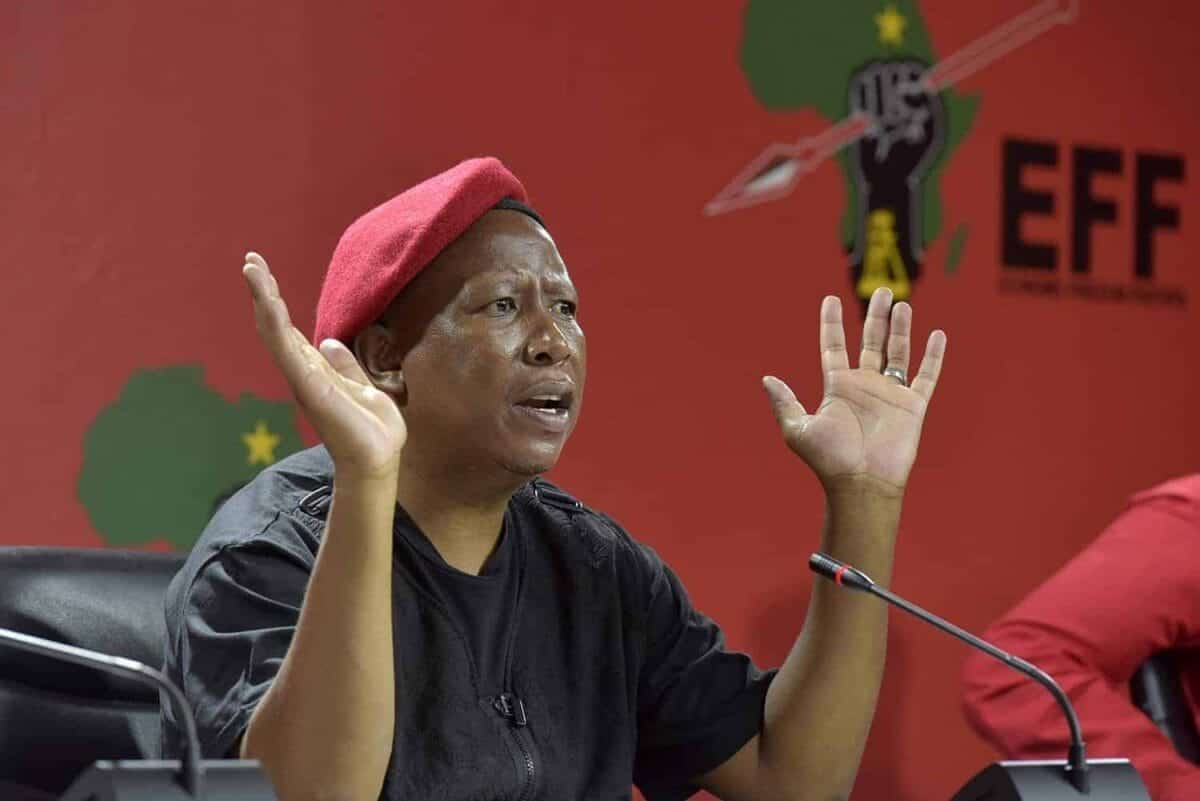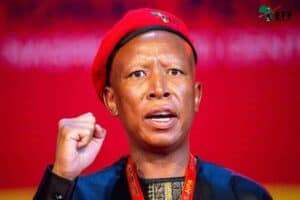After being found guilty on firearm charges, Julius Malema faces a possible 15-year sentence.

Even as defiant EFF leader Julius Malema claimed his conviction for illegally firing a rifle was a politically motivated attempt to discredit the organisation, political analysts warn the future of the EFF could be at risk if he is sent to jail.
Malema has vowed to fight all the way to the Constitutional Court if necessary to get his conviction overturned.
Conviction and possible penalties
It was handed down by the East London Magistrate’s Court yesterday. Sentencing procedures were postponed until early next year.
Malema was found guilty on five charges, including unlawful possession of a firearm and discharging a firearm in public.
The maximum penalty for the first charge is 15 years behind bars. His former bodyguard, Adriaan Snyman, was found not guilty on two charges.
Outside the court, Malema said: “As a revolutionary, going to prison or death is a badge of honour. We cannot be scared of prison, we cannot be scared to die for the revolution.”
Political analyst Andre Duvenhage believes the outcome of this court case will have strong implications for the future of Malema’s political career.
“The question now is what the nature of the sentence is going to be and how it will affect his political career. I believe he will not survive this,” Duvenhage said.
“If there is a jail sentence, no doubt this will finish his political career.”
He believes the EFF could suffer as a result of the judgment because the party has been “built” around Malema’s image.
ALSO READ: Malema guilty of gun charges
“We should not forget that the other strong leaders of the party have disappeared,” he said.
Legal strategy and political momentum
But he does not expect Malema to go down without a fight.
“He will try to go through the appeal route, which is normally the strategy. He could even do an ANC-type Stalingrad strategy. But what I am seeing as missing is some political momentum on the side of the EFF.
“Even when I look at Julius, he looks like a sick man. He no longer has the fight and the momentum he had five or 10 years ago,” Duvenhage said.
Political analyst Ntsikelelo Breakfast said it was too early to predict the implications of the court’s decision.
He agreed Malema is likely to exhaust all legal avenues available to him to clear his name.
“There are many possibilities and the Constitutional Court is the final arbiter over all matters of the law. This is an interesting turn of events. This is about democracy and the rule of law.
“If Zuma can be sent to prison, who is Julius Malema?” he said.
Breakfast also agrees the EFF’s problem is that it has created its image around Malema.
“The party is built on his image and if things take a turn for the worse, it will put the party on the back foot,” he said.
ALSO READ: Malema claims guilty verdict a ‘badge of honour’, vows to appeal
Malema questions judgment and calls out ‘political targeting’
Reflecting on magistrate Twanet Olivier’s judgment, Malema questioned how the man who handed him the firearm that he was found guilty of discharging could be found not guilty.
The EFF leader believes if bodyguard Snyman was found not guilty, it should automatically absolve him, using this to fuel his belief in a targeted prosecution.
“By releasing accused number two, the whole case should have collapsed. But the racist was looking for me,” Malema said.
“That’s why they could not collapse the case, for racist reasons to appease AfriForum, to appease the Oval Office of Donald Trump, to appease all the white supremacists of South Africa.”
Malema thanked his legal team before urging his supporters to “take over South Africa”, saying the information shared at the Madlanga Commission of Inquiry highlighted the state’s weaknesses.
“South Africa has been sold to criminals and criminal cartels and this country must be rescued,” he said.
Broader political and social implications
Political analyst Rene Oosthuizen said the verdict, while a significant legal development, had the potential to deepen existing divisions in South Africa’s already fragile and fragmented society.
“What concerns me is that, given our country’s history of inequality and political tension, this high-profile judgment risks becoming a symbol of wider social and political conflict rather than a step towards justice and accountability.
“I fear instead of fostering national unity and shared respect for the law, this case may further entrench political divisions and deepen mistrust among South Africans,” she said.
Oosthuizen said we have to ask ourselves as South Africans: “Will this verdict serve to unite us, or will it drive us further apart?”
NOW READ: Malema accuses MPs of trying to protect Ramaphosa as ad hoc committee finalises witness list






